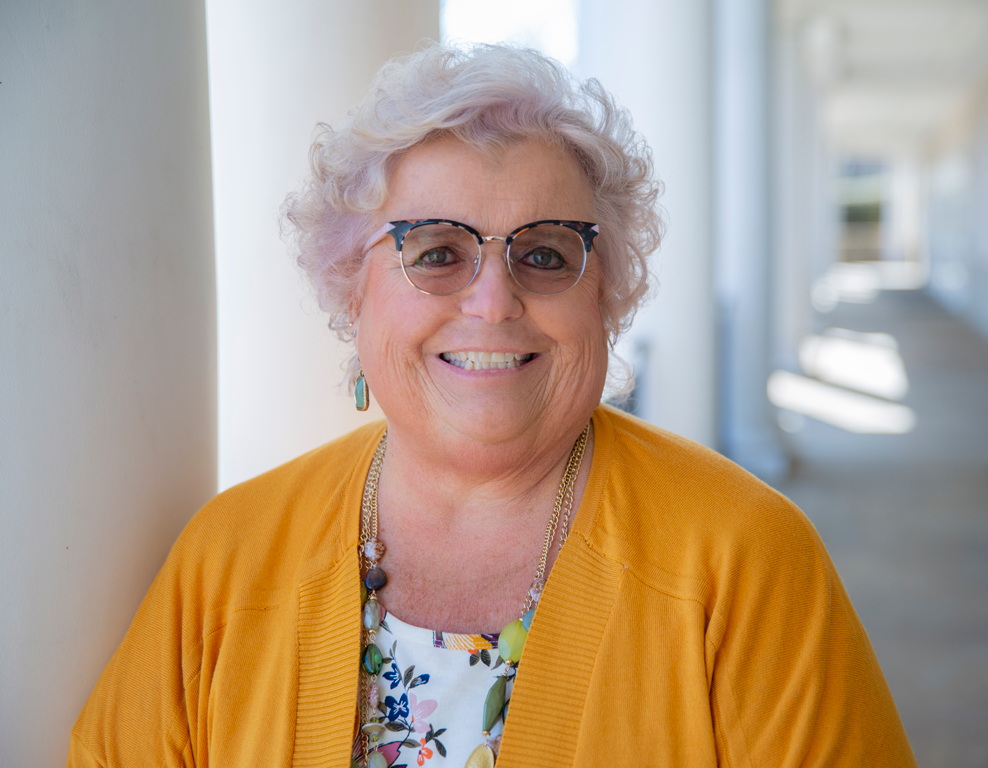Five Questions with Dr. Alice Patterson


Trevecca Nazarene University is home to many passionate faculty and staff. Today, we’re getting to know Dr. Alice Patterson, director of the University’s Doctor of Education (Ed.D.) in leadership and professional practice program. In our conversation, Patterson shared about her love for her work, the history of the Ed.D. program and how it has grown over the years.
What is your role here at Trevecca?
I am the program director for the on-site Ed.D. program, and I also serve as the dissertation coordinator for the on-site students. I love every one of them, and they know it. One of them recently called me “cohort mother.” Our classes meet from 8 a.m. to 5 p.m. most Saturdays, and I’m here all day long. I basically make myself a mini office out in the Cube (an on-campus dining option) because then we can share lunch together, and if there’s an issue, [students] can come talk to me. It’s just a time of fellowship; it’s a bond I have with them. I have the opportunity to develop relationships with them that go deeper and further than just being the program director. I think it’s important that they see leaders lead by example because the doctoral program is in leadership and professional practice.
What do you think prospective students should know about the Ed.D. program?
It has gotten fairly common for graduate programs to use a cohort model, but we were one of the very first. It’s that cohort model that allows for lifelong friendships and networking [among students and graduates]. I think another unique perspective of the doctoral program is the fact that it’s a multi-disciplinary program. Yes, it’s a doctorate in education, and there are individuals who work in the traditional K-12 environment. But there are others that come to the program who may have a background in business, healthcare or government. [In the Ed.D. program], all of these different occupations and backgrounds coming together lends a richness and depth to each cohort. I think the greatest unique trait of the program is the fact the students are able to complete their coursework and dissertation simultaneously, whereas in most traditional doctoral programs, a student would do all of their coursework, then would do the dissertation afterward. So, our students are able to do it in 27 months. Most doctoral programs are somewhere between four to six years.
How would you describe your experience at Trevecca so far?
I actually began as an adjunct in January 1989, so I have been here a little while. I love Trevecca. It is home for me. I’m not a graduate … It is a very special place, and I can tell you from the first time I walked on this campus to talk with someone about the position that was evident. The Trevecca doctorate program is celebrating its 20-year anniversary right now. Being here more than two decades, I have raised a generation of doctors, and it’s been a privilege and honor to do such. In doing so, I think it has allowed me to continue to grow and learn and be a learner—and I think that’s an opportunity many people do not get to have in their careers.
How has the Ed.D. program expanded over the years?
In January 1999, we began with 29 students. Up until about 2007, we only took 25 students per year, and we would have somewhere around 150 people apply. We were the second private university in the state of Tennessee to offer a doctorate. As schools began to add doctoral programs, there became more options. Individuals began to model what we were doing with the cohorts and the weekend classes, so we began to get some competition. In 2007, we had such a large number of applicants who were absolutely extraordinary, we took in a double cohort, 50 applicants. A time has gone on [having a double cohort] has become our standard practice.
What advice would you give Trevecca students?
Pursue your dreams. I know it’s a cliché but live the dream. Pursue it and live it. Life is short. We have no guarantees. If you’ve always wanted to do it, at least try it, and that way, you will have no regrets.
Trevecca offers the Ed.D. program in two formats, face-to-face and online. Interested in online? Read our conversation with Dr. Ryan Longnecker, online Ed.D. program director, to learn more.
Want to learn more or apply?
Click below to learn more about our Ed.D. program!

